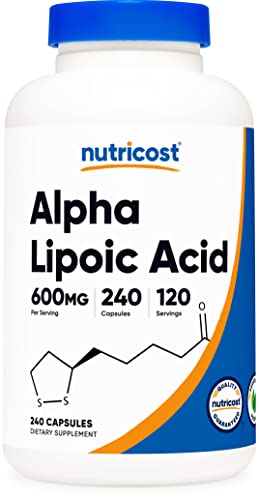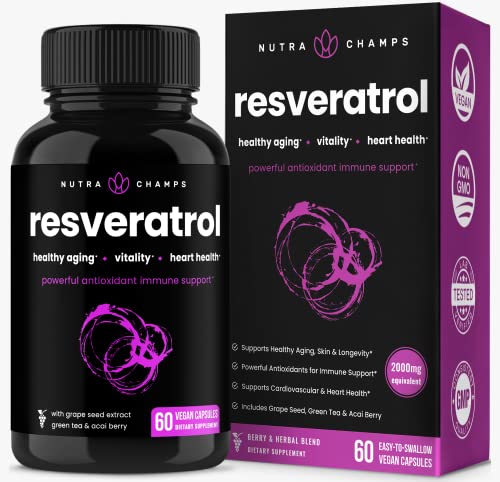If you are diabetic, it is important to make sure that you are getting the best possible nutrition. This includes taking a multivitamin every day. Not all multivitamins are created equal, however. Some contain ingredients that can be harmful to diabetics.
In this blog post, we will discuss the best multivitamin for diabetics and what ingredients to look for. We will also talk about which vitamins and minerals benefit diabetes and are safe to use!
Table of Contents
Ever felt depressed when seasons change? You are not alone! Most symptoms start to get worse around fall and peak during the winter months. The weather gets colder and darker. You can feel lonely, have a lack of concentration, social withdrawal, and feel very tired. On top of that, you can also have these symptoms because you have diabetes.
These symptoms can be amplified during winter and feel worse for people with diabetes. The extra intake of vitamins, multivitamin supplements for diabetics, or herbs can be a solution to boost your mood and make you feel much stronger during these tough moments.
What Are The Best Multivitamins for Diabetics?
Acetyl-L Carnitine could be a non-essential amino acid, which implies that it's created naturally within the body. Its main task is to assist the body with the creation of energy. It conjointly plays a very important role in muscle movement and therefore also the functioning of the brain and heart.
Diabetics respond very well when using Acetyl-L Carnitine supplements. High levels of fat in the bloodstream may be reduced fast.
Carnitine helps to break down fatty acids in the body and binds acyl residues. It may be useful to prevent ketoacidosis.
You need biotin (vitamin B8) to release energy from food. Furthermore, biotin plays a role in the formation of fatty acids.
Biotin conjointly contributes to the upkeep of traditional skin and hair, and also the traditional functioning of the peripheral-nervous-system.
The blood glucose-lowering action of biotin has also been observed in people with type 1 and type 2 diabetes; the effect is most pronounced with a reduced biotin status. Supplementation with 16 mg biotin per day for one week reduced fasting blood glucose levels by 50% in patients with type 1 diabetes.
Any supplement that contains biotin (vitamin H) can have an effect on glucose levels.
Alpha-lipoic acid is a sulfur-containing fatty acid, which occurs naturally in the human body. It's an important molecule, which is found in every cell of the human body. More precisely, alpha-lipoic acid is located in the mitochondria of every cell: the energy factories where sugars are burned and converted into the energy that the human body needs. Alpha-lipoic acid is therefore essential for cellular energy production.
There are strong indications that alpha-lipoic acid could be of preventive and therapeutic value in diabetes, both type 1 and type 2. The protective effect of alpha-lipoic acid in diabetes can be explained by lowering blood sugar and protecting the nervous tissue against free radicals.
Taurine is an amino acid found in some animal foods, as well as in some tissues of our body. Taurine makes up a large amount of the "free" amino acids that circulate in the body instead of making proteins. It contains sulfur, making it important in many of the body's physiological functions. The role amino acid plays in our energy makes them a common ingredient in energy drinks and other energy supplements.
Type one diabetics typically suffer from lower taurine levels, and this will successively have an effect on the thickness of the blood and increase the chance of cardiopathy. Supplementary taurine for diabetic patients could also be able to correct these levels.
Vitamin C is primarily necessary for good resistance and the immune system. Additionally, it ensures healthy bones, teeth, and skin. It ensures a properly functioning immune system and contributes to your energy levels. Vitamin C is a natural antioxidant and, combined with vitamin E, protects the body against diseases. Vitamin C conjointly promotes the absorption of iron.
A shortage of vitamin C causes a reduced immune system and therefore less resistance to diseases. Type one diabetics typically have a lower vitamin C level.
Vitamin D, a fat-soluble vitamin, is important for strong bones and teeth and promotes the absorption of the minerals calcium and phosphorus in the body. Vitamin D also plays a role in the maintenance of resistance and the proper functioning of the muscles. Vitamin D is mainly being retrieved via daylight, more specifically, sunlight. Vitamin D is created in the skin with a big help of sunlight. Two-thirds of the needed amount of vitamin D on a daily basis is produced via sunlight. The rest comes from food, vitamins or extra supplements.
It helps to boost the secretion of insulin and insulin sensitivity, which plays a significant role for blood sugar level regulation.
Vitamin E (tocopherol), a fat-soluble vitamin, plays a role in the production of red blood cells and the maintenance of muscle and other tissues. It is also important for resistance. Vitamin E is an antioxidant.
Mainly, vitamin E is found in vegetable products like grains, nuts, seeds, vegetables, fruits, and oils.
Using vitamin E supplements can decrease the possibility of developing type 2 diabetics and any other diabetic complications.
Zinc is necessary for the construction of proteins and thus for the growth and renewal of tissue. Zinc also ensures healthy bones, hair and skin, and a good memory. In addition, it plays a role in the construction and breakdown of carbohydrates. Zinc is part of the hormone insulin and ensures that the immune system works properly. It also contributes to fertility.
Zinc is mainly found in meat, dairy, fish (herring), brown bread, legumes, and rice.
Zinc deficiency is a common factor with type 1 diabetics. Taking zinc supplements may help lower blood sugar levels for some type 1 diabetics.
The substance resveratrol is found in, among other things, red wine, peanuts, and dark chocolate. It is also available in the form of a dietary supplement. Resveratrol lowers blood sugar in people without type 2 diabetes. A 60-day resveratrol supplementation significantly reduced fasting blood sugar and HbA1c levels compared to baseline measurements.
What Supplements Should Diabetics Take?
For me, the best multivitamin supplements and vitamins that boost my immune system are a healthy lifestyle with exercise and a proper diet. Keeping your blood sugar levels under control automatically gives you the boost you need and does not worsen diabetes symptoms.
But, I also have negative effects on my mood and immune system during the winter periods. Therefore, I consume magnesium, vitamin D, and C. When the winter months are over I generally consume vitamin D once per month as I have a natural vitamin D deficiency.
According to the U.S. Department of Agriculture, American adults need more of the following nutrients.
- Calcium
- Potassium
- Fiber
- Magnesium
- vitamin A
- vitamin C
- vitamin E
Whenever your body craves vitamins, you’ll be able to additionally modify your diet and eat additional foods that contain high doses of vitamins and minerals. If you are allergic to certain food or just don’t like to eat them, people with diabetes can always take vitamins or supplements for diabetes to strengthen their body and health. Even people with type 2 can take vitamins and supplements.
Asparagus is a great and delicious vegetable that tops up your daily dose of vitamin M (Folic Acid). It fights the feeling of disappointment and depression To increase your vitamin C you can always add oranges or lemons into your diet. Vitamin C has a big stress reduction impact.
A few Brazil nuts can do wonders to get more than your daily dose of selenium, which can help prevent anxiety. Salmon, which contains a high level of vitamin D boosts levels of serotonin, a key neurotransmitter affecting our moods. Oily fish delivers omega-3 fatty acids, which help to cope with depression. As a diabetic, you can try some warm oatmeal in the morning for breakfast. It is rich in fiber, which helps regulate blood sugar levels.
Great resources are;
- Whole-wheat pasta and grains
- Brown rice or quinoa
- Beans, lentils, and chickpeas
- Seeds and nuts
- Broccoli, cauliflower, Brussels sprouts, spinach, and kale
- Snap peas, green beans, bell peppers, and asparagus
- Apples, mangos, papaya, pineapple, and bananas
- Citrus fruits
- Tomatoes and avocados
- Lean beef, veal, and lamb
- Turkey bacon, ground chicken, or turkey
- Wild-caught salmon, wild-caught tuna, white fish, and other oily fish
Can You Take Vitamins With Diabetes Medication?
Most vitamins can be taken together with any diabetes medication, and should most of the time be used before or during your meals. It’s always recommended to read the vitamin or supplement package insert before consuming.
If you notice any high blood sugar levels or other diabetes complications, make sure you consult your pharmacy or doctor for advice.
Frequently Asked Questions
Can Vitamins or Supplements Cure Diabetes?
Definitely not! Diabetes can't be cured by taking any sort of vitamins or multivitamin supplement.
They can stimulate your overall health, soothe diabetic neuropathy pain, but certainly not cure diabetes. Vitamins and dietary supplements should only be taken to improve a vitamin deficiency or to strengthen your health and immune system. People with diabetes should always talk to their doctor or read the package insert before taking any vitamins or dietary supplements for diabetes.
On the other side, it's always better to be on top of your blood sugar control. Some supplements may help and have a positive result on your blood sugar. Avoiding high blood sugar is a must. Make sure to control blood sugar on a regular basis. Many people don't and their diabetes treatment may cause side effects.
Should I Stop Eating Vegetables?
No. Always eat your vegetables and fruits. They are good food sources, and fruits and vegetables contain several vitamins that are beneficial for your overall health and body. They are low in fat, salt, and sugar. They belong to a well-balanced diet and a healthy, active lifestyle; and they contain many nutrients.
Sources
At Diabetic Me, we are committed to delivering information that is precise, accurate, and pertinent. Our articles are supported by verified data from research papers, prestigious organizations, academic institutions, and medical associations to guarantee the integrity and relevance of the information we provide. You can learn more about our process and team on the about us page.
- Diabetes.org Vitamins & Diabetes according to the American Diabetes Association
Source: Diabetes.org - National Library of Medicine The effect of Chromium on insulin metabolism
Source: National Library of Medicine - National Library of Medicine Efficacy and Safety of Resveratrol in Type 1 Diabetes Patients: A Two-Month Preliminary Exploratory Trial
Source: National Library of Medicine













Can’t wait to add this to my routine. Thanks for the info!
most doctors say these things dont really help. just eat better.
Does it matter if the vitamins are taken before or after meals?
So, eating grass isn’t enough anymore?
Tried everything, none of these things work. just a waste of money if you ask me.
Yeah, cause veggies were my first guess to cure diabetes. Groundbreaking.
Every bit helps, no need for the negativity.
Love the insights here, really helpful!
Dont think a pill can fix everything. its not that simple.
gotta try this thanks
So, Ely Fornoville, I was wonderin if there’s a specific time of day that’s best for takin these vitamins? Or it doesn’t matter much?
i take mine in the morning feels right you know
Hello, just wanted to mention, I loved this article.
It was inspiring. Keep on posting!